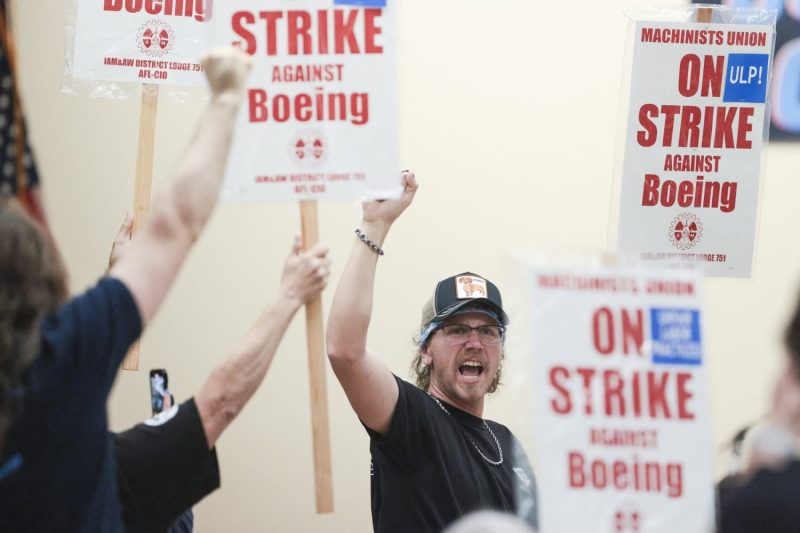The recent strike at the Boeing factory has sent shockwaves through the aviation industry and raised concerns about worker rights and labor conditions. The decision by the union members to overwhelmingly reject the contract offered by Boeing reflects a broader trend of workers demanding fair compensation and improved working conditions.
At the heart of the strike is the issue of job security. Workers at the Boeing factory are wary of the company’s plans to shift production overseas, which could lead to layoffs and reduced wages for American workers. By rejecting the contract, the employees are signaling their resistance to these proposed changes and their commitment to protecting their livelihoods.
In addition to job security, workers are also concerned about safety standards and workplace conditions. The heavy machinery and complex assembly processes at the Boeing factory make it a high-risk environment for accidents and injuries. Many employees feel that the current safety protocols are inadequate and are demanding better protection measures to ensure their well-being on the job.
Furthermore, the strike at the Boeing factory highlights the growing trend of worker empowerment in the face of corporate interests. As companies seek to maximize profits and cut costs, workers are increasingly pushing back against exploitative practices and demanding their fair share of the economic pie. The solidarity shown by the union members in rejecting the contract demonstrates the power of collective action in fighting for worker rights.
Ultimately, the strike at the Boeing factory serves as a wake-up call for both the company management and the broader industry. It sends a clear message that workers will not tolerate unfair treatment and will stand up for their rights. As the labor movement gains momentum and workers become more vocal in demanding change, it is clear that the dialogue between employees and employers will need to evolve to address these growing concerns and ensure a fair and just working environment for all.
